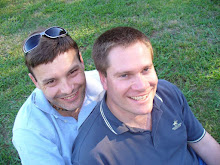Neil Armstrong died on August 25
following complications from recent heart surgery. He was
82. His name needs no introduction. Every student learns at a young age that
Neil Armstrong was the commander of Apollo 11, America’s first attempt to land
men on the moon’s surface. On July 20, 1969 he successfully piloted a flimsy
module, called Eagle, from lunar orbit onto the grey, barren plains of the Sea
of Tranquility. Hours later he stepped off the module’s ladder immortalizing
his name for all of history as the first human to ever stand on the surface of
another celestial body.
Garry and I were in Portland, Oregon when his death was announced.
As a self-confessed space fanatic, I found it fascinating to watch US news
coverage unfold. The first observation that struck me was simply the story's
relatively low profile. It featured towards the end of most TV bulletins and
didn’t make the front page of several daily publications. I found it
extraordinary that the man who enacted one of the greatest feats in the history
of our species seemed to matter so little to the nation that made it possible.
I expected Neil Armstrong’s death to generate an endless news cycle of self-indulgent boasts about America’s enviable superpower status. After all, more than four decades on, no other nation has replicated the Apollo program’s success. Its cost alone demonstrated the nation’s enormous wealth, while its triumphant completion demonstrated the nation’s ability to muster resources to achieve the impossible. Apollo showcased America’s technical know-how at its greatest.
The lack of hype was profound. The contrast couldn’t have been starker when
compared with my experience as an exchange student in upstate New York. In 1983 I found myself constantly surrounded
by brash, boastful and often arrogant claims about America’s superiority. News bulletins promoted it. Sitcoms portrayed it. Even the language of its textbooks and
newspaper proclaimed it.
Fast forward three decades.
News coverage of Neil Armstrong’s death simply seemed to highlight how much
America’s psyche has changed. The nation
no longer appears to believe its own rhetoric.
It’s as if the recent global financial crisis, the relentless rise of
China’s economy and the events of 9/11 have progressively taken their toll. Ironically, beyond the USA, publications such as the Times of London and the Sydney Morning Herald consistently gave the story top billing.
A national memorial service is now planned for September 13 at the National Cathedral in Washington DC. Perhaps the man who personified America’s
greatest, and the human capacity for innovation, will finally be remembered
with pride and admiration. Never again
will any other human be the first to stand on the surface of a celestial body
other than Earth. His one small step for a man truly was a giant leap for
mankind.






No comments:
Post a Comment